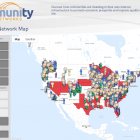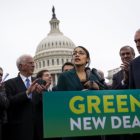Bellingham, WA
Comcast Repair Customer Extortion
|
Comcast Extorts Customers for Repairs
At about 4am this morning I was woken up by the sound of a 18 wheeler backing up down my street. I fell back asleep and found out that that 18 wheeler had snagged, cut and drug a Comcast coax cable about 200 feet down my street. Most likely this cable was not installed by Comcast to the WAC 468-34-290 standard making this incident entirely Comcast’s fault. This problem exists with many cables around town as Comcast does a poor job of maintaining their infrastructure and has adopted a “wait and see attitude” towards maintenance. This broken cable,of course, resulted in an outage. Now you see that’s when my wife and I made the mistake of being hardworking people that get up early.









